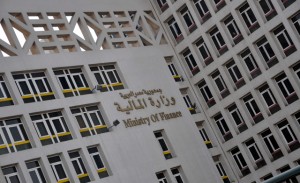
(DNE File Photo)
President Abdel Fattah Al-Sisi issued Presidential Decree 201/2014 amending the general income tax law 91/2005, obliging financial services companies and public sector companies to pay income tax on profits electronically.
Public business sector companies are companies affiliated to the Ministry of Investment.
Minister of Finance Hany Kadry Dimian said in a Wednesday statement that this amendment provides a legal foundation for the electronic payment system. Dimian noted that it helps manage the public debt, as it improves the flow of tax revenues to the budget in the Central Bank of Egypt (CBE).
Electronically paying taxes will decrease the period of acquiring taxes, which sometimes reaches two weeks, Dimian explained. He added that financial services and public business sector companies account for a large share of tax revenues.
Dimian also said that this move will be later applied on the sales taxes. The minister stressed that electronic payment systems is “better” than traditional payment as it involves less risks such as loosing or robbing money.
The chairman of the Tax Authority is assigned to amend the executive regulations of the income tax law, in light of the new amendment, the statement said.
The government expects tax revenues to be collected during the 2014/2015 fiscal year to reach EGP 364bn compared to EGP 358bn last year, representing a 1.6% increase. It also aims to collect EGP 24bn from the total tax arrears recorded during the current fiscal year, compared to the 16bn collected during the past fiscal year, according to Tax Authority Head of Income Mostafa Abdel Qader.
The government is targeting EGP 549bn in budget revenues in the 2014/15 fiscal year, compared to EGP 569bn in revenues in the previous fiscal year. However, the expenditures’ estimate of the current fiscal year is EGP 789bn.
The public debt is expected to register EGP 2.2tn by the end of the current fiscal year (equivalent to 91.5% of GDP), representing a decrease from 93.8% of GDP public debt in FY 2013/2014.



